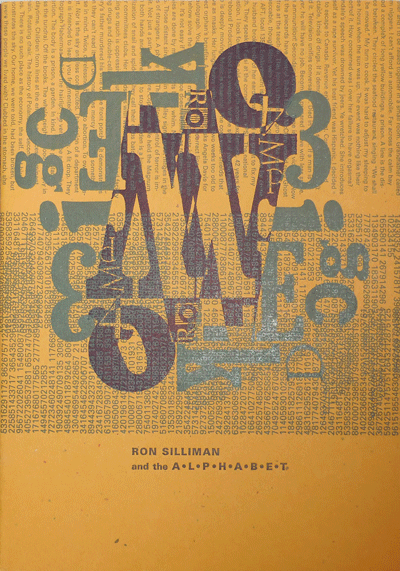Ron Silliman is an American poet who is both unique and influential. However, when his decade-spanning, omnibus collection, The Alphabet, was published by University of Alabama Press in 2008, it seemed to attract relatively little attention. It won no prizes and had no reviews in prominent venues. Some potential reviewers may well have been discouraged by the book’s length – The Alphabet contains twenty-six poems (one for each letter of the alphabet), each poem the length of the ordinary slender volume of verse. Silliman’s projects are always ambitious.
It has become difficult to say what the word ‘experimental’ might mean when applied to poetry. What is unconventional in one decade may seem perfectly ordinary in another. But I can say that Ron Silliman is an experimenter and mean something specific and real. Many if not most of his works are in forms invented by him for the occasion. In this book there is ‘Quindecagon’, a poem of fifteen fifteen-line stanzas, which develops a rhyme scheme by cycling a series of repeated end words across its length. The Alphabet also contains the wonderful, long last section of Silliman’s prose poem Ketjak, in which each paragraph doubles in size by inserting new sentences between repeated sentences which are themselves sometimes expanded and tweaked, producing a sense of quasi-biological growth. It’s as though we were watching an oak grow from an acorn.

As ambitious as Silliman’s formal projects can be, his attention is ever on the quotidian, and especially on the way ordinary people live their lives. He is a keen observer and chronicler of his time(s). In this, he resembles William Carlos Williams. Since much of what he draws our attention to might be described as resulting from the depredations of neo-liberalism and the degradation of the social fabric, what Silliman demonstrates in The Alphabet is not only how change happens but why change is necessary.
Photograph © Jeff Hurwitz







